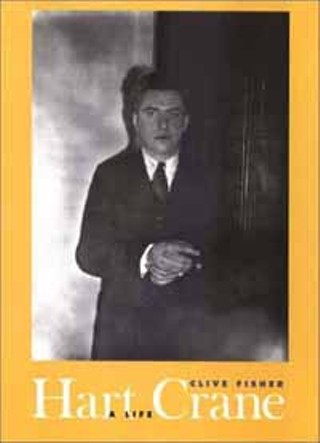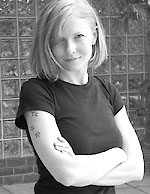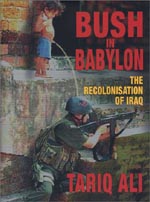Book Reviews
By Roger Gathman, Fri., Aug. 9, 2002

Hart Crane: A Life
by Clive FisherYale University Press, 592pp., $39.95,
On the fug-filled night of April 27, 1932, a passenger on the S.S. Orizaba went overboard. The legend is that he made a perfect dive from the deck. But given Hart Crane's luck, plus his habitual intake of booze, it was probably more on the order of a belly flop. He was coming back from Mexico City that night with his friend Malcolm Cowley's wife, Peggy. He'd gone straight with Peggy, much in the spirit that led Scott Fitzgerald to try rewriting scripts for MGM. Both were career changes disguising major crack-ups. Crane, like Fitzgerald, couldn't tolerate the end of the jazz age.
Crane was a romantic who employed a modernist vernacular. That kind of sensibility was strictly banned when the New Critics were creating modern English Departments and coaxing generations of students to identify influences in The Waste Land. But in the high Nineties, the bony grip of formalism relaxed, and it has become all right again to be a poet without achieving the mournful catholicity and impersonality of an English professor. If the life leaves a big wet stain on the work, all the better. This has thrown a whole new light on the poets of the Twenties -- hence, the recent spate of biographies of such figures as Crane (who was biographied by Philip Mariani three years ago) and Edna St. Vincent Millay (not, it should be said, one of Crane's friends). And now Crane gets the magisterial treatment from Clive Fisher.
The first thing to be said about Fisher is that he is, at best, a clumsy writer. His explications de texts are earnest but parochial, a matter of interspersing solemnities about "the Poet" among ripe quotes from Crane. This reminds me, charmingly, of ninth-grade English class -- but it sure as hell ain't Helen Vendler. On the life, Fisher has few axes to grind. He does appreciate that Crane was queer, and fundamentally liked being queer -- a definite advance over earlier biographers, although not really a controversial thesis in this day and age.
The nonscholarly reader goes to poet's biographies for the anecdotes. Luckily, Crane was a veritable mass manufacturer of anecdotes: This happens when you are a) a raging alcoholic and b) are invited to numerous parties. We see Crane, as a youngster in Cleveland (he was the son of Cleveland's leading candy manufacturer), smelling shoes for poetic inspiration; we get the scoop on his famous propensity to ball sailors, the objective correlative of his lyrical fascination with the sea; we follow him through ludicrously inadequate jobs (as a candy salesman in Akron, once -- as a writer of a promotional pamphlet on the health-giving properties of cheese, another time); we learn that even in Akron, in the second decade of the century (a town one would imagine to be cursed with a stubborn and Babbitt-like heterosexuality), a man like Crane could fossick out the hidden ephebe.








